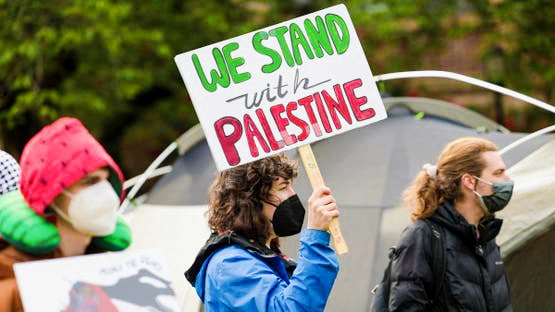The U.S. State Department announced the cancellation of more than 6,000 student visas during 2025 due to exceeding the legal stay duration and violating laws, including supporting terrorism, as part of the tightened immigration measures initiated by the administration of President Donald Trump.
This decision came after an intensive review that included students applying for student visas, especially those who publicly participated in pro-Palestine protests, where Secretary of State Marco Rubio confirmed in May 2025 that the administration is closely reviewing the visa status of these students.
A senior official at the State Department told Fox News Digital that about 6,000 visas were canceled due to legal violations such as assault, driving under the influence, robbery, or supporting terrorism.
According to the same source, around 800 students were arrested or legally pursued due to acts of violence, while between 200 and 300 students had their visas revoked for their involvement in activities supporting Hamas, which is classified as a terrorist organization by the U.S. government, such as fundraising.
According to State Department reports, the number of canceled visas rose to 40,000 by 2025, compared to 16,000 visas canceled during the administration of President Joe Biden, reflecting an increase in security tightening on student applicants.
The department official noted that the visa cancellation campaign did not begin only with the Trump administration but is part of ongoing efforts for years, aimed at protecting U.S. higher education institutions from individuals who violate laws or threaten national security.
Senator Marco Rubio expressed support in a session with the Senate Foreign Relations Committee in May for the continuation of the campaign to cancel the visas of violating students, emphasizing the need for more measures to protect American universities.
On the other hand, Democrats, including Senator Jeff Merkley, criticized these policies, considering them a "violation of due process," warning that canceling visas without regard for individual rights constitutes an attack on fundamental freedoms.
These measures come as part of executive orders signed by Trump in January 2025, aimed at tightening security screening for applicants for U.S. entry visas, especially from areas that the U.S. government considers high-risk, in addition to combating anti-Semitism by all legal means.
In a related context, Washington suspended the issuance of humanitarian and medical visas for residents of Gaza, in a move reflecting the increasing tensions in U.S. foreign policy regarding the Palestinian-Israeli conflict.
It is worth noting that a student visa allows foreigners to study at U.S. higher education institutions for a specified period, which differs from a green card that grants permanent residency in the United States.
This escalation in the cancellation of student visas reflects a strict security approach aimed at limiting the exploitation of the U.S. educational system for purposes that may threaten national security.

